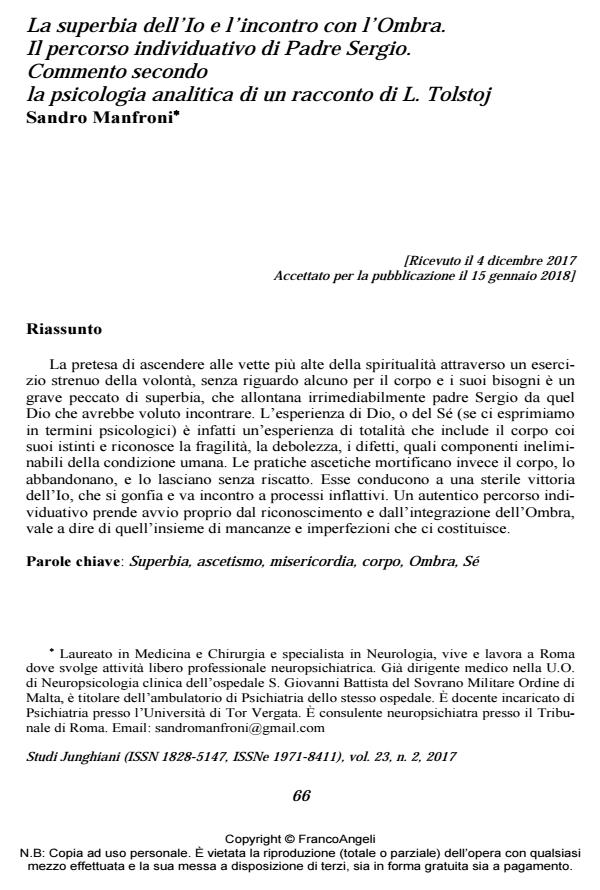The Pride of the Ego and the Encounter with the Shadow. The Individuation Path of Father Sergio. A commentary on a story by L. Tolstoy from the point of view of analytical psychology
Journal title STUDI JUNGHIANI
Author/s Sandro Manfroni
Publishing Year 2018 Issue 2017/46
Language Italian Pages 24 P. 66-89 File size 236 KB
DOI 10.3280/JUN2017-046004
DOI is like a bar code for intellectual property: to have more infomation
click here
Below, you can see the article first page
If you want to buy this article in PDF format, you can do it, following the instructions to buy download credits

FrancoAngeli is member of Publishers International Linking Association, Inc (PILA), a not-for-profit association which run the CrossRef service enabling links to and from online scholarly content.
The claim to ascend to the highest peaks of spirituality through a will strenuous exercise, without attention to the body and its needs is a grave sign of pride, which irreparably removes Father Sergio from that God whom he would have liked to meet. The experience of God or of the Self (if we express ourselves in psychological terms) is in fact an experience of totality that includes the body with its instincts, and recognizes fragility, weakness, defects, as indispensable components of the human condition. The ascetic practices, on the other hand, mortify the body, abort it, and leave it without redemption. They lead to a sterile victory of the ego, which swells up and goes through inflationary processes. An authentic individuative path begins precisely from the recognition and integration of the Shadow, that is to say, of that set of deficiencies and imperfections that constitutes us.
Keywords: Pride, ascetism, mercy, body, Shadow, Self
Sandro Manfroni, La superbia dell’Io e l’incontro con l’Ombra. Il percorso individuativo di Padre Sergio. Commento secondo la psicologia analitica di un racconto di L. Tolstoj in "STUDI JUNGHIANI" 46/2017, pp 66-89, DOI: 10.3280/JUN2017-046004